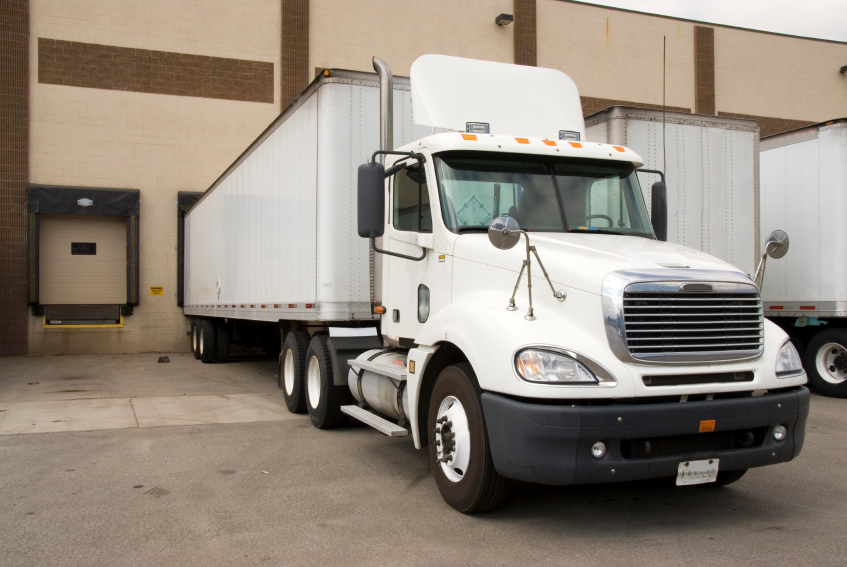Cargo Security Solutions: Merging Physical Security Devices With Technology

January 17, 2012 – Nick Erdmann
Cargo theft has impacted nearly every industry, from paper products to televisions. Experts estimate that cargo and equipment theft costs 30 to 50 billion annually worldwide. Security is a necessity today; with the nation on heightened security alert, the transportation industry must be prepared. By its very nature, the transportation industry places goods in a more vulnerable environment than when they are at a shipper's or receiver's facility. It's not like having your goods in a warehouse; you cannot post a security guard, install lights or a closed circuit TV or build a fence around your freight. Expensive freight is moved along highways and by sea everyday and physical security devices and new tracking devices are becoming more of a necessity for trucking and container companies. New security procedures and rising insurance costs are also driving companies to secure their fleet. Before 9/11 companies would lock and seal only some loads that were deemed high value, and accepted theft as a cost of doing business. Today many security conscious companies have taken steps to combat theft of their equipment and products. These security procedures range from "low tech" physical security devices to "high tech" tracking devices. These devices are becoming more affordable, allowing companies to develop security programs incorporating one or both of these security devices, and drastically reducing the number of thefts among their company.
Physical Security Solutions
High security locks and seals are not a luxury item for transportation companies anymore. Physical security has become an effective tool in preventing cargo theft within the transportation industries security programs. Companies using high quality padlocks, king pin locks, air cuff locks and seal guard locks have effectively prevented cargo thefts.
When choosing a physical security device, a company must take into consideration there: fleet, equipment, and employees. High security locks must be of high quality and be flexible to the company’s needs. The physical security company's products and reputation must also be reliable to ensure compatibility and service of those locks in the future. These steps along with a solid company policy will ensure a seamless security program.
Trailer Security
High security padlocks must be resistant to physical attack and being picked. These locks also must be able to withstand the harsh environments that containers and trailers are exposed to. These padlocks also need to be user friendly, allowing the company to set up a system that is flexible, yet provides the utmost security for their equipment. Characteristics of a good high security lock allow for master keying systems and restricted keyways, limiting the possibility for unauthorized duplication of keys.
In addition to securing rear trailer doors, companies must evaluate their need to secure unattended drop trailers and terminal trailers. There are many options including providing a secure drop yard for loaded trailers, which minimizes theft occurrence. High security king pin locks can be used to prevent unauthorized fifth wheel hook ups to trailers. Effective king pin locks should be able to be keyed into a company's master keying system, allowing for added security. High security king pin locks should be constructed of heavy duty steel and be resistant to physical attack and be pick resistant.
Transport Security, Inc. supplies both trailer and tractor high security locks that meet the security demands of the transportation industries.
The ENFORCER Adjustable Lock for example, is a portable heavy duty lock that consists of 10 gauge chrome plated spring steel body and the locking component is surrounded with cast iron, preventing tampering. This device allows for a tight fit on virtually all containers and trailers and is secured with an ABLOY lock that provides superior performance in weather and is highly resistant to physical attack.
Tractor Security
Thieves are not only stealing loaded trailers, but also taking the tractors. These tractors in some cases are then used to steal trailers. Properly securing these expensive tractors starts with driver education and responsibility. Drivers must always lock doors, turn off the truck and secure the tractor brakes with a high security air cuff lock, preventing the release of truck and trailer brakes. Theft of a truck can happen within a few seconds of a driver leaving his truck unattended at a truck stop. Air brake locks must be user friendly, allowing the driver to easily attach the device to his brake nozzles within seconds. Properly securing a tractor can help prevent thieves from easily driving away with not only a loaded trailer, but an expensive tractor.
The Air Cuff™Lock is an example of a brake lock that is a two part lock made of high impact resistant material and secured with an ABLOY lock cylinder. The lock is user friendly and is installed on the brakes within seconds, completely locking out the tractor and trailer brakes.
Preventing seal integrity has become more of an issue since 9 /11, especially with shipments of food and chemicals. Shippers have refused loads that show evidence of seal tampering, costing companies thousands of dollars. We have come to the point that we need to protect the seals themselves. Seal guard locks provide a barrier box that prevents unauthorized removal of cargo seals. These devices are made of a high strength steal and withstand physical attack. These units can be used in tandem with trailer locks to protect the cargo seals' integrity.
With heightened security for the transportation industry, physical security has merged with high tech tracking devices. These tracking devices enable a transportation company to accurately locate their assets in transit. There are an abundant amount of tracking devices on the market today, each having their own advantages and disadvantages depending on your companies needs. Three of the most popular types of tracking devices include GPS, A-GPS (Assisted GPS and CDMA (Cellular). With any tracking technology your company chooses, researching the product and the supplier is very important, given this can be an expensive investment. Companies should compare technologies and run specific tests with their equipment and staff, making sure the technology is compatible with their company.
Tracking Technology
Basic GPS units have been around for years with great success. These devices collect and store data such as time, latitude and longitude from GPS satellite while the unit is in use. Once the unit returns, the information on where the unit has been can be downloaded onto a computer into easy to read maps. These devices are accurately able to show stops and starts, location, speed and other important data. GPS devices tend to be bulky in nature and require external antennas mounted on trailers and containers and must be able to "see the sky" in order for the unit to work effectively. This limits the use of units in underground parking garages and warehouses, where thieves are more likely to transport stolen cargo and equipment. These units also tend to be "power hungry,” limiting their battery and power life. These units are very effective for those companies who require a fleet management device for locating their fleets and for time management of deliveries.
A-GPS is a fairly new type of GPS device that has all of the features of basic GPS, but is more effective in areas where GPS is not. A-GPS is able to be very covert and does not have to "see the sky,” with an internal antenna in some cases. Many of these devices can be the size of a cell phone or smaller. Many devices have self-contained batteries, making it completely portable allowing them to be concealed in freight. This allows less chance of a thief discovering and disengaging the unit. A-GPS allows for real time tracking of an asset that can easily be seen on a laptop or computer, in real time sometimes reporting locations within seconds of "calling" the unit. With the compatibility of these units and complete user control, allows security personnel to have an exact location of their asset at their fingertips. Another feature A-GPS offers is "geofencing,” which allows security personnel to define a location they want their asset to stay inside of, (ex. Terminal or certain route) and are notified via email or cell phone when their asset leaves the defined "geofence.” Accurate locations of assets with this technology are made easier, with mapping technology that shows exact street names and major landmarks. These devices are also less "power hungry,” therefore allowing a longer battery life, in some case as long as a month. This makes these units more effective for longer shipments along the supply chain. Some of these newer devices use CDMA technology, which allows the unit to incorporate the cellular towers and technology for more accurate locations. Combining all of these features allows A-GPS/CDMA devices to provide a complete range of anti-theft and supply chain management tracking applications.
Conclusion
Technology is evolving every day, with more sophisticated tracking devices and physical security options for the end user. Companies looking to secure their entire fleet are now combining the "tried and true" physical security products with the new technologies of the tracking devices, allowing for a complete security program. Ultimately saving the company money and lowering the risk of their cargo being stolen. Security programs must be thought out and well planned in order for the chain to be effective.
Transport Security, Inc.- ENFORCER https://www.transportsecurity.com
Contact:
Nick Erdmann
nick@transportsecurity.com
About Transport Security, Inc.
Transport Security, Inc. - ENFORCER® is a leading cargo security company that has been providing high security solutions for the transportation, supply chain and retail sectors for over 30 years.The ENFORCER® Line of high security locks, C-TPAT security seal solutions, covert GPS tracking technologies set the standard for the industry.
Security within the transportation/shipping industry has evolved substantially in recent years due to the increased risks in theft. In the United States, alone cargo theft accumulates for $15 billion in annual losses.
Sign up for our free Cargo Security Newsletter to receive industry news and informative articles from security professionals: https://www.transportsecurity.com/Contact.asp
Article Source: https://EzineArticles.com/?expert=Nick_Erdmann






